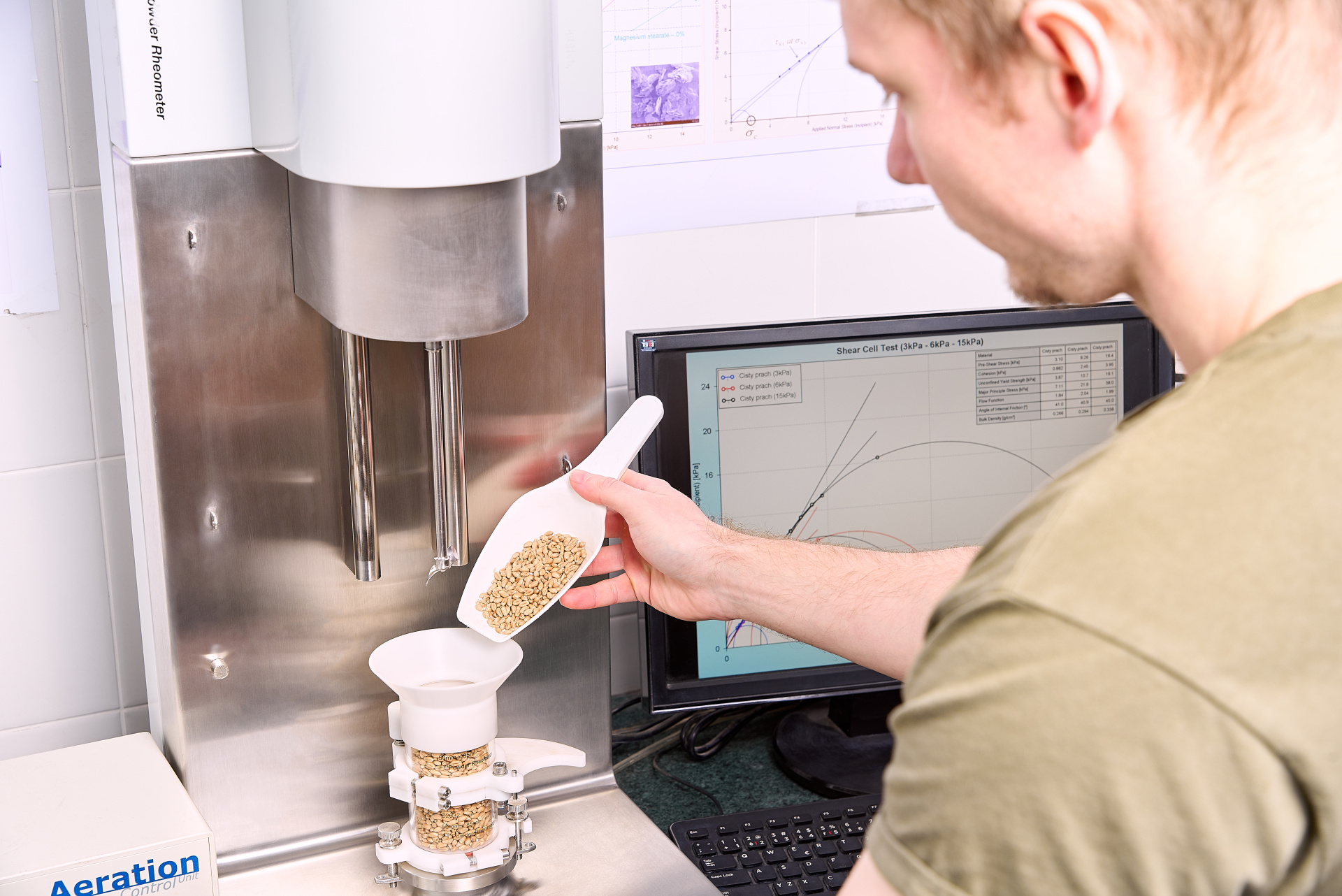
Students use computer simulations to design equipment for bulk material processing
Using the most modern methods to look inside mixers, crushers, sorters, and even coolers found under power plant boilers, and based on these findings, designing devices for more efficient processing or transport of bulk materials. This is exactly what students in the Process Engineering in Raw Materials study programme of the Technical University of Ostrava are learning under the guidance of experts from the Faculty of Mining and Geology. This programme is the only one in the country and interested students can apply by the end of March. The program has also recently obtained accreditation for a combined form of Master study programme.
According to a number of studies, up to 70 percent of the industry works with bulk materials. For their processing, a variety of equipment is needed to adjust the size of materials for further processing, utilization, or transportation whether it is extracted material, such as aggregates, biomass, or bulk materials for the pharmaceutical industry.
“Students are offered to explore the issue of designing equipment for processing bulk materials in an innovative way. We use DEM – Discrete Element Method to simulate what happens with materials in the equipment and to monitor its properties in modified conditions. Without having to produce a prototype or functional sample, thanks to computer modeling, we are able to find out how the equipment will behave and optimize it,” explained the main focus of the study program its guarantor and Vice-Dean for Development and Industry Cooperation from the Faculty of Mining and Geology, Jan Nečas.
Students can work with state-of-the-art equipment, as the local laboratory is among the five best equipped in Europe. Collaboration with foreign countries is a matter of course, and students have the opportunity to travel abroad for internships with partners in Australia, Norway, Germany, Italy, the United Kingdom, and many other countries.
“We also stay in close touch with industrial companies. Our customers include CEZ, Veolia, Precheza, and a number of smaller companies looking for more efficient solutions for processing raw materials, as well as engineering firms. Students can get involved in contractual research during their studies, we bring them into operation and if they are interested, they can find employment opportunities while still at university,” Nečas added.
According to Nečas, graduates can pursue a career as project managers; technologists designing the processing of raw materials, able to perform chemical and physical analyses of various types of materials in the control and operational laboratories of industrial enterprises. They are very well versed in the mechanics of bulk materials, handling raw materials, and related legislation. They are able to communicate with experts and the general public using the latest information technologies.